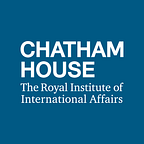Five Things You May Have Missed in the US and Americas This Week
As Trump’s national security advisor goes to war with the International Criminal Court, the Environmental Protection Agency rollbacks climate change regulations, while the New Hampshire primaries highlight the diversity of US midterm candidates. Find out the five things you may have missed in the US and the Americas this week.
(1) John Bolton Takes Aim at the International Criminal Court
The US National Security Adviser John Bolton — a long-time vocal adversary of the International Criminal Court (ICC) — speaking to the libertarian Federalist Society on Monday condemned what he sees as the ‘ineffective, unaccountable and […] outright dangerous’ ICC, claiming that it enjoys ‘unacceptable overreach.’ Bolton’s comments come as the ICC announced it is investigating US military personnel over alleged war crimes in Afghanistan.
Bolton vowed to negotiate bilateral agreements to prohibit nations from surrendering US persons to the ICC, to ban its judges and prosecutors from entering the United States and to sanction their funds in the US financial system. Responding to Bolton, the ICC released a statement saying, ‘The ICC, as a court of law, will continue to do its work undeterred in accordance with those principles and the overarching idea of the rule of law.’
(2) Landmark New Jersey Healthcare Reform Protects Obamacare Provisions
Democratic governor of New Jersey, Phil Murphy, has undermined the efforts of the Tax Cuts and Jobs Act to dismantle the Affordable Care Act and has reduced insurance rates by up to 9.3 per cent for 2019. Prior to this intervention by the Democratic legislature, insurance premiums were predicted to rise by over 12 per cent next year, as an indirect result of the tax reform.
The Center for American Progress estimated that changes to healthcare provision under the legislation would increase the cost of health insurance to the consumer by around $1,000 next year. Through reintroducing the individual mandate in May and the creation of a reinsurance programme in August, these measures encourage uninsured Americans to invest in health insurance, while spreading the cost of high-risk and high-cost patients across multiple insurers, together lowering the cost to the individual across the board. These lower costs may allow existing enrolees to maintain their health insurance coverage, while encouraging and enabling thousands more Americans to purchase this type of insurance.
(3) Betsy DeVos Proposes to Weaken Demands on Schools and Universities to Address Sexual Harassment and Assault
According to draft legislation obtained by The New York Times, education secretary Betsy DeVos is preparing to reassess the approach to dealing with sexual harassment and assault in education institutions. Under the new guidelines, schools will be able to use which standard of evidence they choose in disciplining their staff or students accused of sexual assault and harassment. It maintains DeVos’s policy, instituted in September 2017, to use mediation to settle issues and reach informal resolutions. This draft would also reduce the burden on universities to address off-campus attacks.
Jess Davidson, executive director of End Rape on Campus, was quoted as saying these amendments amount to ‘a tacit endorsement of making campuses a safer place to commit sexual assault rather than a safer place to learn free from violence.’ The guidelines could limit the kind of sexual harassment and assault that can be investigated and to whom accusations must be reported. The Department of Education estimates that the number of investigations would fall by over a third and would save schools and universities up to $400 million in the next ten years.
(4) US Environmental Protection Agency Proposal on Methane Emissions Threatens Climate Change Efforts
The Environmental Protection Agency (EPA) released a proposal this week that reduces the regulation and penalty on oil and gas companies to identify and prevent methane leaks during their operations, rolling back Obama-era environmental protection legislation. The proposal could save $75 million in regulatory costs annually but the EPA estimates that the new law risks up to 380,000 tonnes of additional methane gas being released into the atmosphere between 2019 and 2025 — the equivalent of 30 million tonnes of CO₂. The proposal will be subject to 60 days of public comment before it is finalized next year.
Democratic Governor of California, Jerry Brown, said of the proposal that ‘it is perhaps the most obvious, dangerous and irresponsible action by Mr Trump.’ This proposal continues a series of rollbacks on US environmental protection policies, including relaxing CO₂ emission caps on power plants and vehicles, pulling out of the Paris climate agreement and taking aim at California’s landmark Clean Air Act.
(5) New Hampshire Primaries Highlight Increasing Diversity in Candidates for the Midterms
New Hampshire — a well-known ‘purple state’ — held primaries this week for congressional and gubernatorial seats in the coming November midterm elections. Long-time Democratic senator Molly Kelly will be running for governor against incumbent Republican Chris Sununu — one of the most popular governors in the country. Kelly is one of the 15 women elected by either of the two major parties in this primary season to run in the midterms in November.
In the first congressional district, long-time state politician and local community leader, Chris Pappas, was elected with 43 per cent of the vote as the Democratic congressional nominee. Pappas, the first openly gay nominee in the state will run in November against Eddie Edwards, the former police chief, who is also the state’s first African-American candidate.
